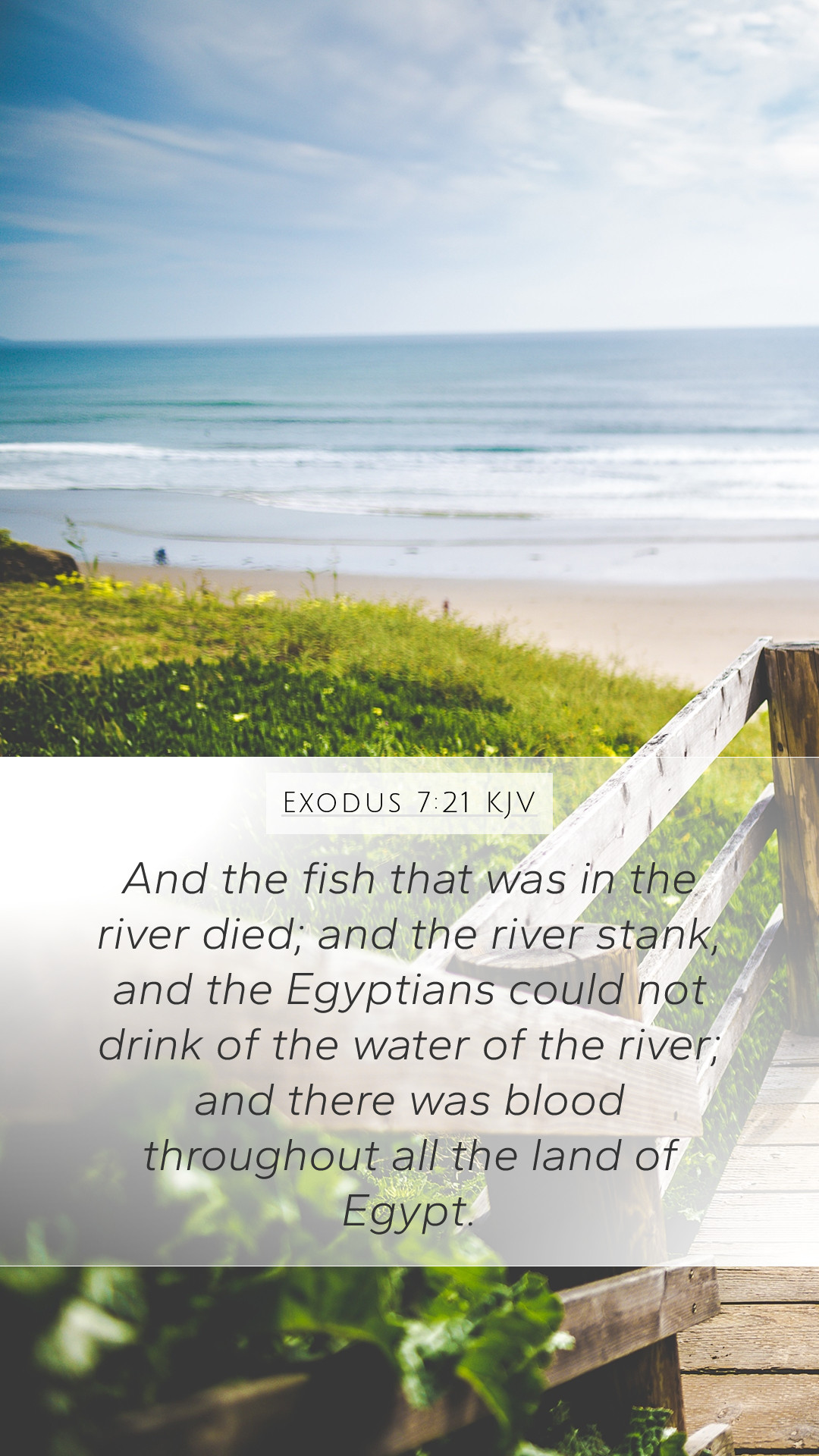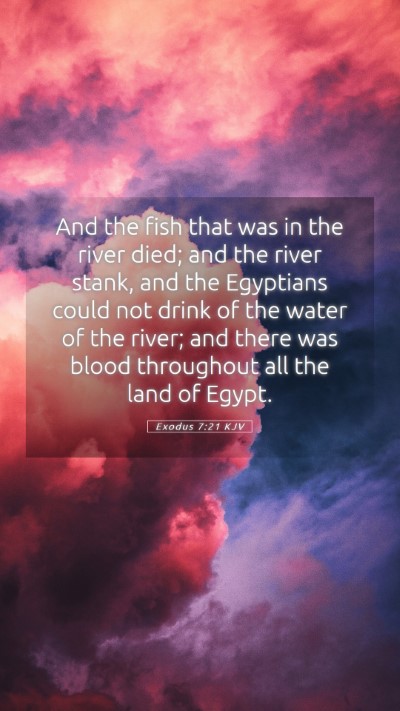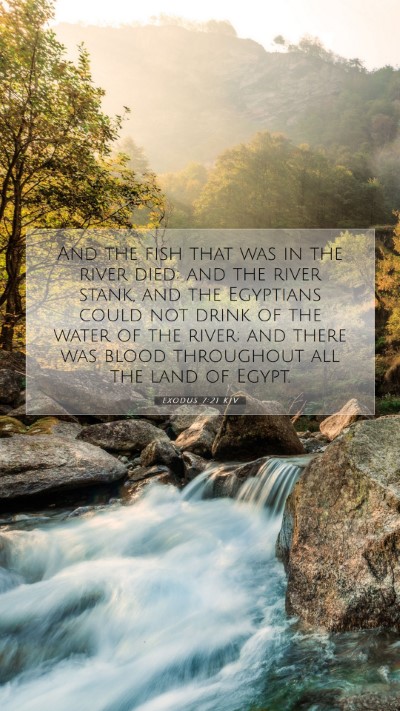Understanding Exodus 7:21
Exodus 7:21 states:
"And the fish that was in the river died; and the river stank, and the Egyptians could not drink of the water of the river; and there was blood throughout all the land of Egypt."
This verse forms part of the narrative concerning the ten plagues that God inflicted upon Egypt to compel Pharaoh to release the Israelites from slavery. Understanding this verse requires a detailed exploration of several aspects:
Contextual Background
Initially, the backdrop of the Exodus narrative sets the stage for this plague. Moses and Aaron were sent by God to confront Pharaoh, illustrating the struggle between divine authority and human governance.
Verse Explanation
According to Matthew Henry, this plague serves as a direct attack on the Egyptian worship of the Nile as a deity. The turning of the water into blood not only symbolizes judgment but also serves to demonstrate the impotence of Egyptian gods when faced with the singular God of Israel.
Albert Barnes emphasizes the practical implications of this plague. The death of the fish and the foul smell that arose from the Nile illustrates the devastating environmental impact of this divine judgment. It was not merely a miraculous sign; it disrupted everyday life, making the river undrinkable and dramatically affecting food sources dependent on the Nile.
Adam Clarke highlights the significance of water in the ancient world, representing life and sustenance. The transformation of the river into blood illustrates God’s control over nature and His power to bring judgment. The Egyptians’ inability to drink the water symbolizes their dire situation without divine intervention.
Symbolism and Themes
- Judgment: The plague signifies God’s judgment on a nation that oppressed His people.
- God’s Sovereignty: It showcases God’s absolute authority over all creation, including the natural elements perceived to hold power by the Egyptians.
- Call to Repentance: It serves as a warning to the Egyptians to recognize the error of their ways and repent.
Spiritual Insights
The events surrounding Exodus 7:21 invite readers to reflect on the nature of idolatry and the consequences of placing trust in false gods. This can serve as an important lesson in Bible study groups and online Bible study formats where the faithful gather to explore themes of divine justice and redemption.
Moreover, this passage encourages deep Bible study insights into the significance of blood in both the Old and New Testaments, providing a connection to the redemptive sacrifice of Jesus Christ.
Additional Contextual References
- Exodus 7:14-18: The initiation of the plagues leading up to the transformation of water into blood.
- Revelation 16:4: A parallel in the New Testament showing God’s continued theme of judgment through similar imagery.
- Psalms 105:29: A reference illustrating God’s actions against the Egyptians during their oppression of Israel.
Conclusion
Understanding Scripture, especially challenging passages like Exodus 7:21, can enrich one’s faith and foster a deeper connection to biblical history and theology. This verse and its implications encourage a reflective approach to Bible verse commentary and Biblical exegesis.


